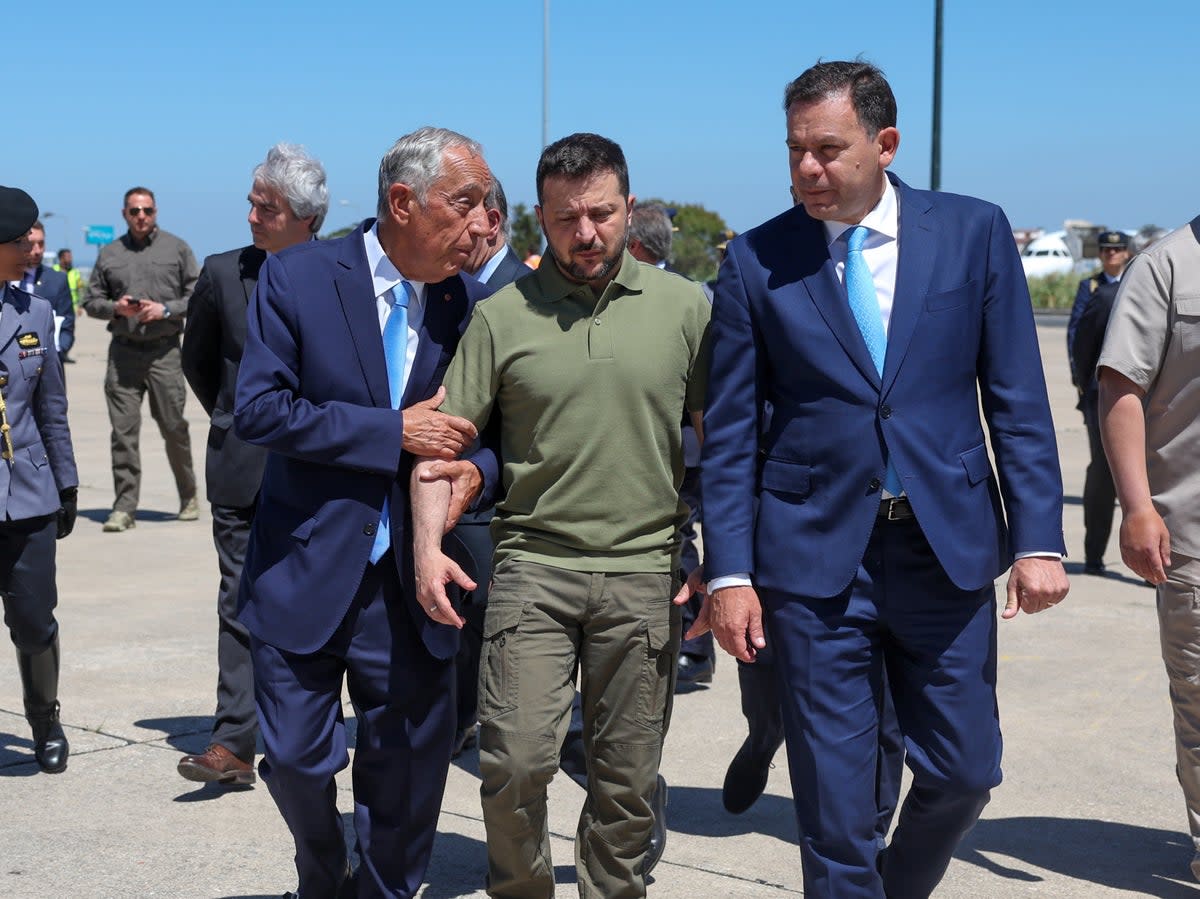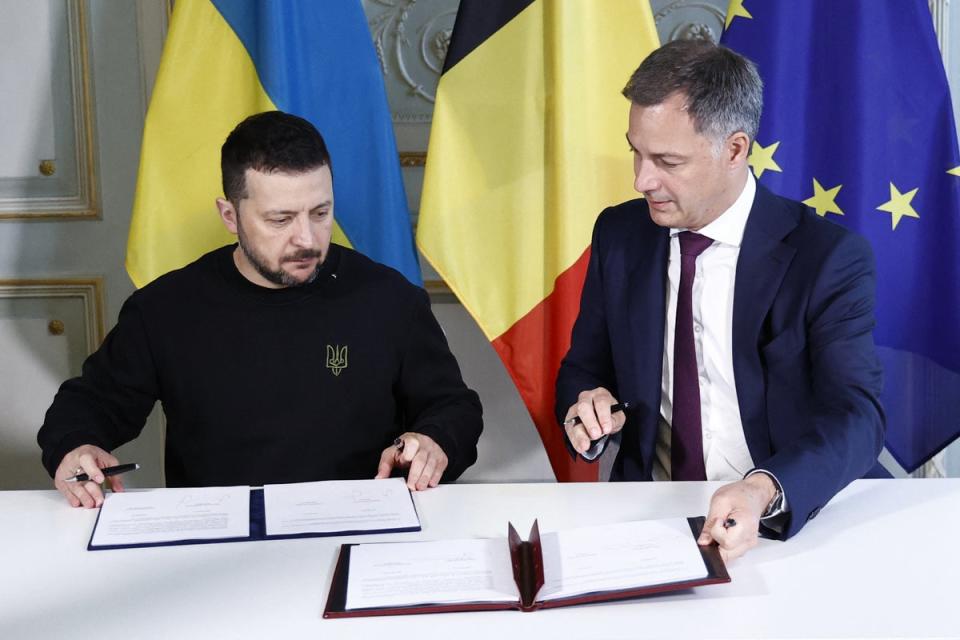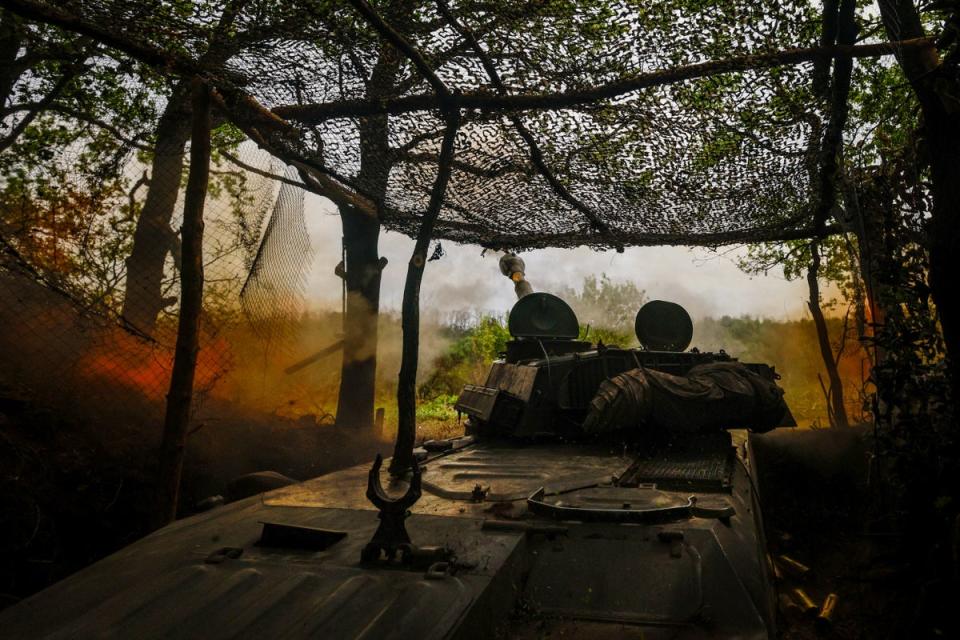Zelensky hails key allies as Sweden becomes third country this week to pledge $1bn in military aid

Sweden has become the third country in as many days to pledge more than $1 billion (£785m) in additional military aid to Ukraine as president Volodymyr Zelensky concluded a three-day tour of Europe.
The package, announced by defence minister Pal Jonson, is the largest single tranche of support donated by Sweden since Vladimir Putin ordered the full-scale invasion of Ukraine, valued at 13.3 billion Swedish crowns (£981m).
It comes at a vital time for Ukraine as Russian forces, emboldened by an advantage born from a US military package delayed by more than six months, advance across the 640-mile frontline.
The Swedish aid will include tanks, armoured personnel carriers (APCs) and vital artillery ammunition that has been in short supply for months in Ukraine, as well as financial support for Kyiv to purchase additional materials.
Most importantly, the Swedish package will include two Airborne Surveillance and Control aircraft (ASC 890), which will allow Ukrainian air forces to more easily identify long-range targets and will help Ukraine with the planned introduction of F-16 fighter jets donated by other Western countries.
The package capped off a whistle-stop tour for the Ukrainian leader through Spain, Portugal and Belgium. Mr Zelensky secured a €1bn (£851m) aid package from Madrid on Monday and another $1bn in military aid from Brussels the following day, which included 30 US-made F-16 fighter jets. Later, he secured an additional £107 million from Portugal.


Having cancelled an earlier European tour to focus on the developing situation in Kharkiv - Ukraine’s northeastern region on the border with Russia - Mr Zelensky has frantically sought to shore up further support from Kyiv’s western allies as Putin’s troops advanced in that attack.
Ukraine looks to have stabilised that battle but Russian forces now hold an additional 65 square miles of territory in Kharkiv, while further assaults to the southeast, in the Donetsk region, continue to stretch Kyiv’s forces.
Mr Zelensky said he was “profoundly grateful” for the Swedish package, adding in a separate message that Ukraine and its Western allies were “always stronger together”.
“Today, I am glad to express my profound gratitude to Prime Minister Kristersson, his government, and all Swedes for Sweden’s largest military aid package announced thus far, totalling nearly €1.2 billion,” he wrote.
Ukrainian author Illia Ponomarenko, the country’s most followed journalist, wrote: “Today is the day of Sweden in Ukraine, undoubtedly.”
Ukraine has long called for the F-16s, seeing them as integral to countering Russia’s aerial threat, and the addition of more than two dozen of the jets, as well as the ASCs, will be crucial not only for defensive purposes but for offensive capabilities as well.
In the past few months, Russia has introduced explosives known as glide bombs into its armoury, which are essentially modified dumb bombs, fixed with wings and a navigation system, that are capable of levelling multi-storey buildings. Hundreds of Ukrainian civilians have been killed by glide bomb attacks this year.
Ukrainian military officials maintain that the most effective way to counter this threat is with F-16s that could strike the Russian jets firing the glide bombs from afar. The ASCs meanwhile would effectively act as a “force multiplier” for the F-16s, Mr Jonson wrote on X, extending their ability to strike Russian positions as well as pilots.


